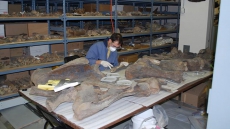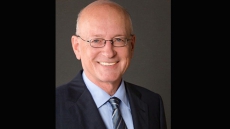TORONTO - Companies would be forced to justify why their prices are higher in Canada than in the United States or face naming and shaming under federal legislation introduced Tuesday — a move some critics called misguided.
Industry Minister James Moore said the aim is to protect Canadian consumers, not regulate prices.
"This unexplained difference in price between American and Canadian prices for the exact same product is frustrating," Moore said at a toy store.
"It's called geographic price discrimination. A more blunt way of putting it is to call it price gouging of consumers."
Under the Price Transparency Act, Canada's Competition Bureau would have the power to compel companies to explain their strategies and how they come by their Canadian prices.
The bureau would then publicize its findings but could not impose sanctions unless anti-competitive practices were uncovered.
Numerous studies have shown prices in Canada to be between 10 and 25 per cent higher on average than in the U.S.
Moore himself rhymed off a list of articles — shampoo, a television, running shoes — he said cost as much as double this side of the border.
Last year, a Senate committee cited "country pricing" by manufacturers as one reason for the difference, while a study by the American Economic Review journal also blamed distributors and wholesalers.
Experts often cite a complex set of volatile variables for Canada-U.S. price differences, including the exchange rate, transportation costs, tariffs, and different regulations.
"Those factors do explain some of the price differences but it's certainly not the only story," Moore said.
In 2009, the Conservative government scrapped price discrimination as a longstanding but rarely enforced criminal offence with punishment of up to two years.
Moore said the potential for public fallout should result in companies cutting unfair prices.
Finn Poschmann, vice-president with the C.D. Howe Institute, said the legislation will do nothing to bring Canadian prices down.
"It would be odd if businesses charge anything other than what consumers are willing to pay," Poschmann said.
"(The bill) is a misguided direction of government resources that can only prove costly to businesses and costly to consumers to little good end."
Competition Commissioner John Pecman said in an interview the bureau, which will receive no extra funding, will now start developing forensic pricing expertise.
He said the bureau would take consumer complaints but intended to be proactive in identifying and publicly naming price gougers.
"Hopefully, the parties involved will voluntarily decide to change their conduct," Pecman said.
The price gap has been particularly hard on smaller retailers who have lost sales to cross-border shopping.
As a result, the 45,000-member Retail Council of Canada said it supports the legislation.
"For the consumer it's simple," said council CEO Diane Brisebois. "They want transparency on why prices are higher in Canada."
George Addy, a lawyer with competition expertise, said cross-border pricing is a highly complex issue dependent on "almost an infinite number of factors."
It remains to be seen what would happen if price gouging was publicly identified but it would likely fall to consumers to take action, perhaps via social media, to shame offenders, Addy said.
Prentice puts a number on cost of low oil prices






